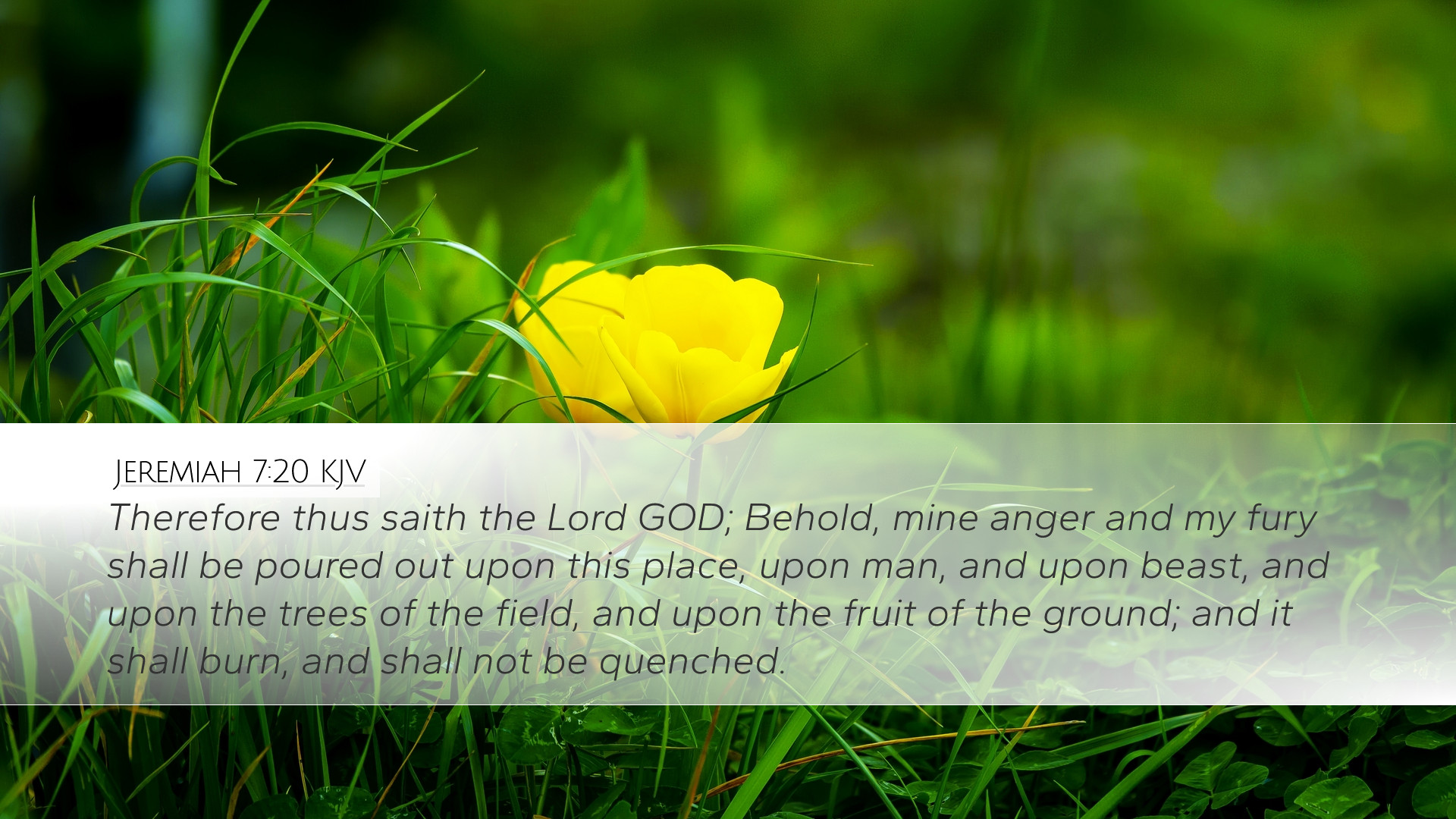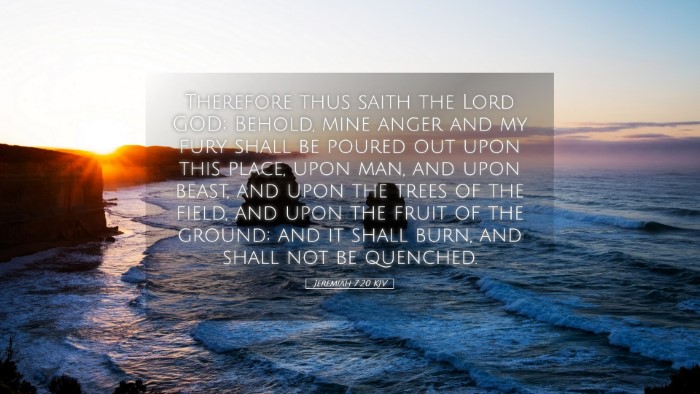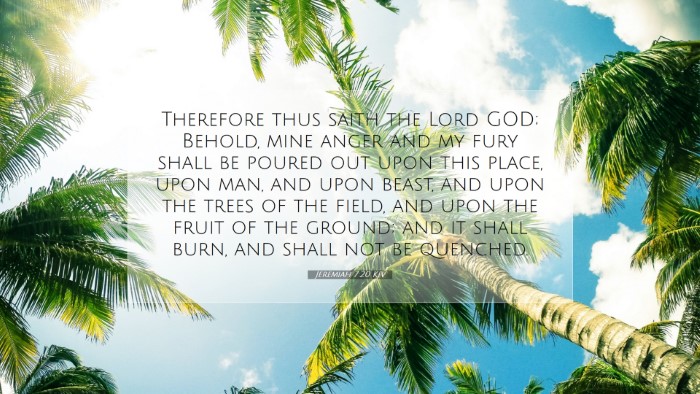Commentary on Jeremiah 7:20
Jeremiah 7:20 declares: "Therefore thus says the Lord God: Behold, My anger and My fury will be poured out on this place, on man and on beast, on the trees of the field and on the fruit of the ground; it will burn and not be quenched." This profound verse encapsulates the seriousness of God's judgments against sin and the profound implications of divine wrath. Below, we will explore various insights from notable public domain commentaries to elucidate the depth of this scripture.
Divine Anger and Judgment
According to Matthew Henry, God's "anger and fury" indicate a total and consuming response to the persistent sin of the people. Henry emphasizes that this wrath is not arbitrary but is provoked by the iniquities of the nation:
- Holiness of God: Henry states that God's holiness necessitates judgment against sin. When the Lord’s patience has run out, His anger becomes evident and is directed at all creation that has participated in the corruption.
- All Creation Affected: The verse highlights that the consequences of divine judgment extend to "man and beast, the trees of the field and the fruit of the ground." This reflects a holistic aspect of God’s vengeance where even the earth itself suffers due to human transgression, demonstrating the interconnectedness of creation.
The Nature of God’s Wrath
Albert Barnes provides a detailed examination of the nature and purpose of God's wrath in this verse:
- Just Retribution: Barnes notes that God's fierce displeasure is just and serves a purpose. It reminds readers that divine wrath seeks to correct and bring about a return to righteousness.
- Unquenchable Fire: The phrase "it will burn and not be quenched" signifies a persistent and irrevocable divine retribution. The fire represents both the intensity and the eternality of God’s judgment, suggesting that once judgment begins, it is inevitable and without mitigation.
Implications for the People of Israel
Adam Clarke, in his analysis, draws attention to the implications for the people of Israel:
- Warning to the Disobedient: Clarke notes that this message serves as a stark warning to Israel for their disobedience. The nation, having turned from God, faces imminent judgment which serves as both a warning and a call to repentance.
- Call to Prophetic Witness: He further emphasizes that prophets like Jeremiah are raised up not simply to announce judgment but also to implore the people to check their ways and return to faithfulness. This underscores the pastoral nature of prophetic ministry.
Theological Insights
Throughout history, scholars have debated the theological implications of God’s anger. In reflecting on Jeremiah 7:20, several key themes arise:
- God’s Sovereignty: The verse underscores God’s supreme authority over all creation, illustrating that His judgments are enacted with purpose and divine sovereignty.
- Human Responsibility: This scripture reminds the faithful of the weight of responsibility they bear in upholding the covenant with God. The reflection on judgment serves as an impetus for personal and communal accountability.
- Hope Amidst Judgment: While the verse depicts divine wrath, it also serves as a platform for hope. The acknowledgment of God’s judgments prompts the faithful to seek repentance and restoration, should they turn back to God.
The Role of Repentance
In light of this severe warning about judgment, the authors of the commentaries emphasize the critical response of repentance among the people:
- Urgency of Repentance: The implication of swift and decisive repentance is emphasized across commentaries. Acknowledging their sin is paramount for averting judgment.
- Restoration through Grace: Clergy and scholars alike point out that God’s anger does not preclude the possibility of grace and restoration for those who earnestly repent. Jeremiah’s message carries the duality of warning and hope, illustrating the character of God who desires the restoration of His people.
Conclusion
Jeremiah 7:20 serves as a poignant reminder of the seriousness of sin and the reality of God’s divine judgment. As articulated by Henry, Barnes, and Clarke, the implications of this verse reach far beyond its historical context and offer rich theological insights for modern readers. The scripture emphasizes God's justice and holiness while simultaneously calling readers to acknowledge their own shortcomings and return to faithfulness. In pastoral, scholarly, or personal reflections, the call to heed the warnings of this verse is ever relevant, reminding us of the grace offered through repentance amidst judgment.


